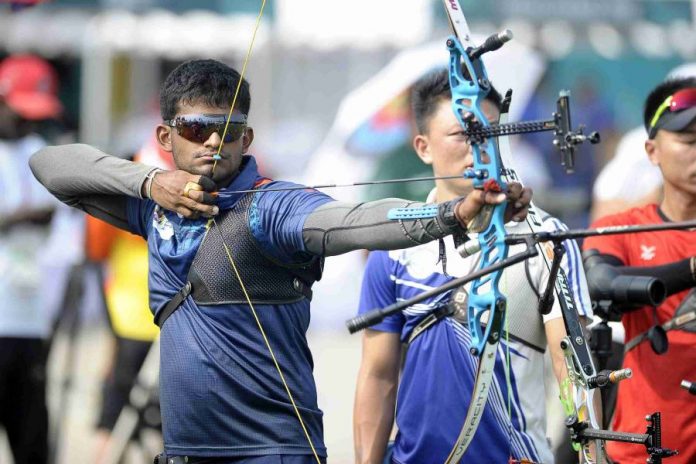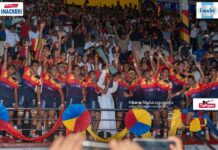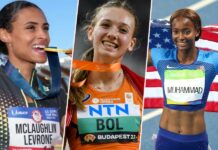From a champion rower back in his school days, Sajeev De Silva was later inspired to take up archery. De Silva is a talented sportsman with an Olympic dream and is also the face behind the “Tea avenue” restaurant/café. Be it work or play, he will do and dare, the past pupil of S. Thomas’ College sat down with us to give some valuable insights about himself. Here are the excerpts.
Tell us briefly about your school career and achievements.
College had a lot of sports on offer, so I tried a lot of them out. I switched between cricket and other sports without really setting down into anything. When I was in Grade 7, my father being a rower, took me to a training session. I had been saying no for quite a long time until he finally convinced me to come along. I think the main reason why I kept rowing was because I liked the environment and had some friends doing rowing as well. I only started racing about 3 years later. I won my first race in grade 10 and then had a break because of O/Ls.
After that I got back into training. I managed to take part in the Royal-Thomian and in the latter part of my schooling career I took part in the Asian Games. In 2009 I was named Best Sportsman of the Year and in 2010 I was awarded the ‘Thomian Blue’ which is an award for representing the country while still in school.
What made you continue rowing after leaving College?
While in school also I represented CRC at a certain level. There is a regatta called the Madras-Colombo regatta which I took part in during school, so it was a natural progression from there.
When did you decide to take up archery as a sport?
It wasn’t that long after leaving college, when I realized that coming to the highest level in rowing, which is the Olympics, was quite difficult. There are certain limitations like height and stature, not all sports get adequate funding, so it was really difficult to balance everything while making a lot of sacrifices to get to that level. So, I decided to take a U turn and switch to another sport where it was possible. I watched Archery at the 2012 Olympics and saw that it was a sport where there was a chance of winning a medal. I didn’t want to just go for a tournament and do something knowing that there is no chance, but wanted to take part in something that there was a possibility of winning.
Working towards the Olympic dream is never easy. How would you describe your weekly routine?
Currently I train 6 times a week. Work till 2.30 and practice till about 7.30 – 8. I have a set up where I can shoot in the night even till about 9. You don’t really get paid for doing the sport so you have to find a way to balance everything else in order to go towards your goal.
Initially my target was the 2016 Olympics. At that time, I wasn’t really consistent and didn’t hit the Olympic minimum qualifying standard. I didn’t have proper coaching or the necessary facilities back then. So, after that I targeted 2020 and now I’m consistently hitting the MQS. My target is to do the same at the Asian qualifier in November.
Apart from your sporting career, tell us a bit about how you started your business.
“Tea Avenue” started in 2013. I had to take some time off to get the initial outlet set up.
My parents are very supportive with everything I do. Even the team is very supportive because I’m not here most of the time. They also know what I’m trying to achieve. All I was to do is achieve my goal and then give my full time here.
How do you think archery can improve in the coming years?
There are many people in the forces especially who are full time and paid to do the sport. If they are nurtured properly with proper training and coaching there is no reason why Sri Lanka cannot win medals at any event. Unfortunately, there isn’t proper equipment or coaching in a suitable environment to excel. I have my own training location set up which is easily accessible for me. These guys are probably suffering from the heat and it’s quite hard in those conditions. You don’t have to do so much to excel it’s just that even though people are getting paid, they don’t have the necessary training facilities. Money alone won’t help you win a sport. As a country I think we have a lot more full time archers compared to others. There’s probably more than 50 others out there.
I’ll give a small example. From my experience in rowing, I know what it took me to get me to the top. We had the equipment, coaching and necessary facilities to practice. So, I just had to apply that in this sport and work hard. I may have been slightly inconsistent but I’ve managed to stay in the top 3 for almost 3 years now. In the Asian Games there was only one spot and I was selected. I always wondered why others aren’t performing despite being paid to play the sport. I maybe targeting just 2020 but Sri Lanka as a country can achieve a lot in the coming years if the necessary facilities are provided. I may have scored the highest from Sri Lanka but I think that’s because of my own effort I put from the experience of playing other sports.
Lastly, what are your final words to the young readers on the value of sports?
Sports teaches you a lot outside the school curriculum. Sports have a culture. You learn to respect. You become office bearers and groom others. Not just your team, you look after the next team as well. I’m saying this from my experience in rowing. Eventually you learn a lot of things on the way. While in school you must try to do a sport even if you don’t excel. It’s about being a team and making friends in the end, not just being a champion. It’ll help you when working and those lessons will come in handy.
ThePapare.com wishes Sajeev all the very best towards achieving his goals! Stay with ThePapare.com to find more about Archery and the 2020 Olympics happening in Japan next year.



















